
 Flash News
Flash News
Korça/ 40-year-old man jumps from fifth floor balcony, in critical condition
Croatia restores compulsory military service
Illegal constructions in Theth, Manja demands disciplinary proceedings against prosecutor Elsa Gjeli
Details from the murder of Renis Dobra, the perpetrators came with 2 Range Rover cars from Rrëshen
The Supreme Court left him in prison, Meta addresses the 'Constitution'
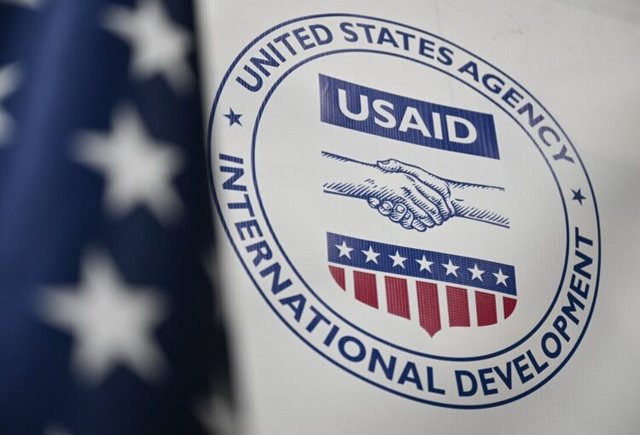
On January 28, Secretary of State Marco Rubio issued an “emergency humanitarian exemption” to allow life-saving aid to be exempt from Donald Trump’s foreign aid freeze.
Two weeks later, in Malawi, a country of 20 million people in southern Africa that is the seventh poorest in the world by GDP per capita, most local organizations have been forced to stop working. About 5,000 people—many of them health workers—have lost their jobs, says Mazisayko Matemba of the Health and Rights Education Program, a local NGO. “We expect more people to get infected and start dying.”
From South Africa to Afghanistan, the situation is similar. Rubio issued two executive orders to save PEPFAR, a successful AIDS program, as well as other essential health, nutrition, and housing programs from the destruction that Elon Musk is wreaking on the Department of State Efficiency (DOGE).
Musk has swiftly dismantled USAID, but DOGE has destroyed foreign aid systems so quickly—closing offices, laying off thousands of contractors, freezing bank accounts—that Rubio’s orders are still having no effect, according to aid workers in several countries.
“Even when an exemption is issued, there is no way to enforce it because the payment system is broken,” says Kate Almquist Knopf, former USAID Africa director based in Nairobi.
In Malawi, antiretroviral drugs funded by PEPFAR are one of the main reasons why life expectancy has increased from 45 years in 2000 to 63 years in 2022. In South Africa, the $440 million the US spends each year on fighting HIV and tuberculosis represents about 17% of the national budget for treating these diseases.
Jeremy Nel, who runs one of the largest HIV clinics in Johannesburg, says PEPFAR-funded staff were informed on January 27 that they could not report to work. They are still waiting for instructions from USAID, but “it is unclear whether USAID still exists,” he says.
"The biggest problem has been the sudden interruption."
Across Africa, aid workers are struggling to figure out how necessary a program must be to get the Trump administration's support.
Direct food aid may be allowed, but what about cash vouchers to buy food at the market? HIV medication may be allowed, but what about education programs to stop transmission?
Is distributing seeds to villagers who will go hungry if they don't plant before the next rainy season considered life-saving aid? In Washington, there is no one to answer the phone and resolve these questions, aid officials say.
“The moves were made with such ignorance, without understanding what was required on both sides of the implementation chain,” says Nathaniel Raymond, executive director of the Humanitarian Research Laboratory at Yale University’s School of Public Health.
Rubio, a supporter of PEPFAR and foreign aid during his Senate career, may still have an opportunity to repair some of the damage he has overseen.
But Trump has offered little diplomatic support for doing so and seems to believe Musk's claim that foreign aid is fundamentally a corrupt scheme./ The Economist
Latest news


Malltezi: SPAK admits, we are in a process that began with Balla's false report
2025-07-10 22:34:16

Si të çliroheni nga bllokimet emocionale me anë të ushtrimeve
2025-07-10 21:57:24

Lala: Veliaj wanted to return as mayor
2025-07-10 21:40:46

VIDEO/ Brawl in Bolivian parliament, deputies physically clash
2025-07-10 21:20:30


Albania experienced one of the longest heat waves of the last decade
2025-07-10 21:01:09

The Government approves new procedures for declaring residence in e-Albania
2025-07-10 20:39:32

Koka: Northerners will not forget Edi Rama's racist operation in Theth
2025-07-10 20:18:24
The 3 zodiac signs that will be most affected by the 'Full Moon' of July 10
2025-07-10 20:04:49
New director of the National Center of Cinematography appointed
2025-07-10 19:51:12
Korça/ 40-year-old man jumps from fifth floor balcony, in critical condition
2025-07-10 19:40:19
'Tired Woman'/ The Syndrome That Affects Thousands of Women Every Day
2025-07-10 19:34:02
Jane Birkin's original Hermès bag sells for $10 million
2025-07-10 19:26:22

Britain-Ukraine agreement signed for 5,000 Thales missiles
2025-07-10 19:00:25
Fire in Zvërnec, flames endanger two hotels
2025-07-10 18:57:19
Croatia restores compulsory military service
2025-07-10 18:39:01
Spahia: The great truth of the strong accusation of the residents of Theth
2025-07-10 18:35:07


The Supreme Court left him in prison, Meta addresses the 'Constitution'
2025-07-10 17:57:21
New punishment with 'new' regulations
2025-07-10 17:54:46
EU translator fired over fears for Zelenskyy's safety
2025-07-10 17:45:37
'You are a policeman, but not God, take my soul', protest for Agon Zejnullahu
2025-07-10 17:41:21


Video/ Rama repeats the scenario, kneels before Meloni again
2025-07-10 16:56:31
He set fire to a plot of olive trees, 50-year-old man arrested in Shijak
2025-07-10 16:46:19

Rubio: US and Russia have exchanged new ideas for Ukraine peace talks
2025-07-10 16:36:20
Death of 27-year-old, Lipjan Police Commander Resigns
2025-07-10 16:21:28
Video/ An apartment burns in Tirana near the New Bazaar
2025-07-10 16:09:36


Jensila lights up the internet with her birthday greetings to Ledri
2025-07-10 15:42:08
They're full of pesticides! List of 12 products we need to be careful of
2025-07-10 15:31:04

Worker falls from scaffolding in Shëngjin, urgently sent to Trauma
2025-07-10 15:11:03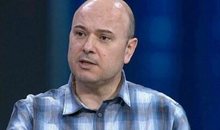
Malltezi: Within one day they seized my accounts, properties and shares
2025-07-10 15:01:23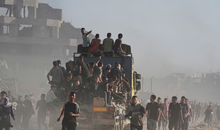
EU: Israel has agreed to more aid to Gaza
2025-07-10 14:55:19
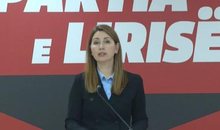

Murder of Reni Dobra, 23-year-old's vehicle pulled from the water
2025-07-10 14:29:23
Trump's tariffs on Brazil raise coffee prices
2025-07-10 14:16:07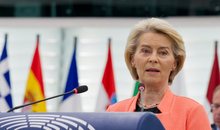
Ursula von der Leyen survives no-confidence vote
2025-07-10 14:04:27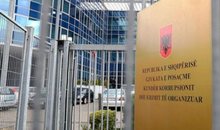

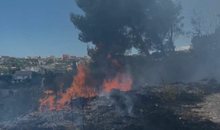
Fire in Lezha, flames near electrical substation
2025-07-10 13:32:24
Residents clash with police in Theth, a woman faints
2025-07-10 13:24:38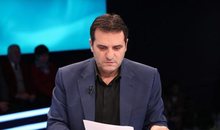
"Rama and Xanun"
2025-07-10 13:15:46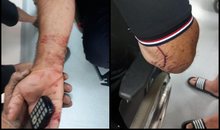

Zodiac signs most likely to get divorced in July 2025
2025-07-10 12:45:51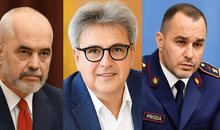
A scapegoat for an illegitimate Republic
2025-07-10 12:35:02
"He has devastated his own nation"/ Berisha: Rama imprisons his opponents!
2025-07-10 12:26:54

Albanian man injured with knife in Italy
2025-07-10 12:08:55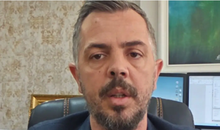
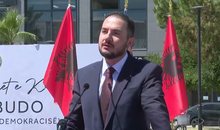
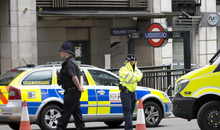

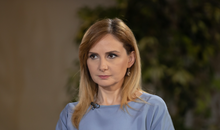
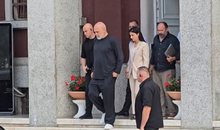
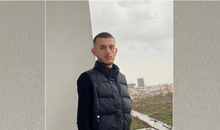
23-year-old in Mat drowned with rope, 4 suspects are being held
2025-07-10 10:58:53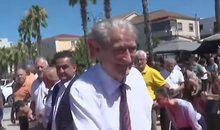
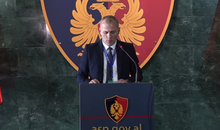
After the dismissals, the new director of the Shkodra Police is appointed
2025-07-10 10:30:10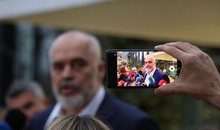
BIRN: Rama's action for public spaces, a repeated spectacle
2025-07-10 10:29:11
Action in Theth, Shkodra Police leaders dismissed
2025-07-10 10:16:28
Fatal accident on the Tirana-Durres highway
2025-07-10 10:01:58
The incinerator does not exist, but the government continues to increase funds
2025-07-10 09:51:45
Albania is aging at a rapid pace! 30% of the population is over 60 years old
2025-07-10 09:46:23
End of an era, Modric says 'goodbye' to Real Madrid
2025-07-10 09:36:09
Mount Dukat has been on fire for 6 days, residents request air intervention
2025-07-10 09:27:24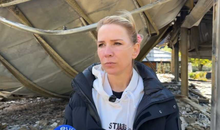

"Poverty on the rise"/ DW: Many people in Germany are not getting paid
2025-07-10 09:08:06
Horoscope, what do the stars have in store for you today?
2025-07-10 08:51:59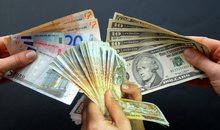
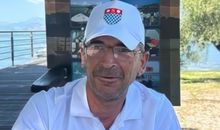



The scorching heat returns, the thermometer climbs to 40°C
2025-07-10 07:58:52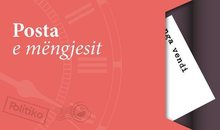
Morning Post/ In 2 lines: What mattered yesterday in Albania
2025-07-10 07:46:35
Tourist operator in Theth: They are demolishing our houses without warning
2025-07-09 22:54:57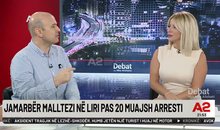
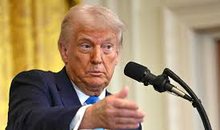
Trump and Israeli commander warn: Gaza ceasefire could be near
2025-07-09 22:13:21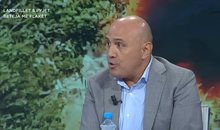
Fire in Elbasan Landfill, pedagogue: It is a cancer and environmental crime
2025-07-09 21:54:47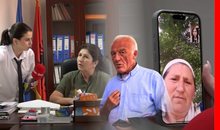
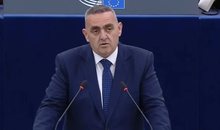

Dangerous summer, number of snake bites increases
2025-07-09 21:22:13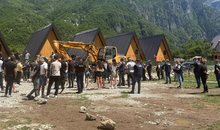
Berisha appeals again: Stop state terror against the residents of Theth!
2025-07-09 21:15:36
'Kissing disease' virus linked to several forms of cancer
2025-07-09 21:04:44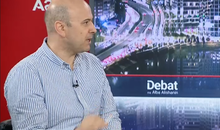
Malltezi confesses after release: Justice has become a political weapon
2025-07-09 20:51:48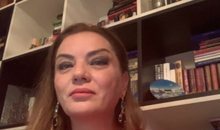
Vokshi: Albania's EU integration has stalled due to lack of free elections
2025-07-09 20:37:21
